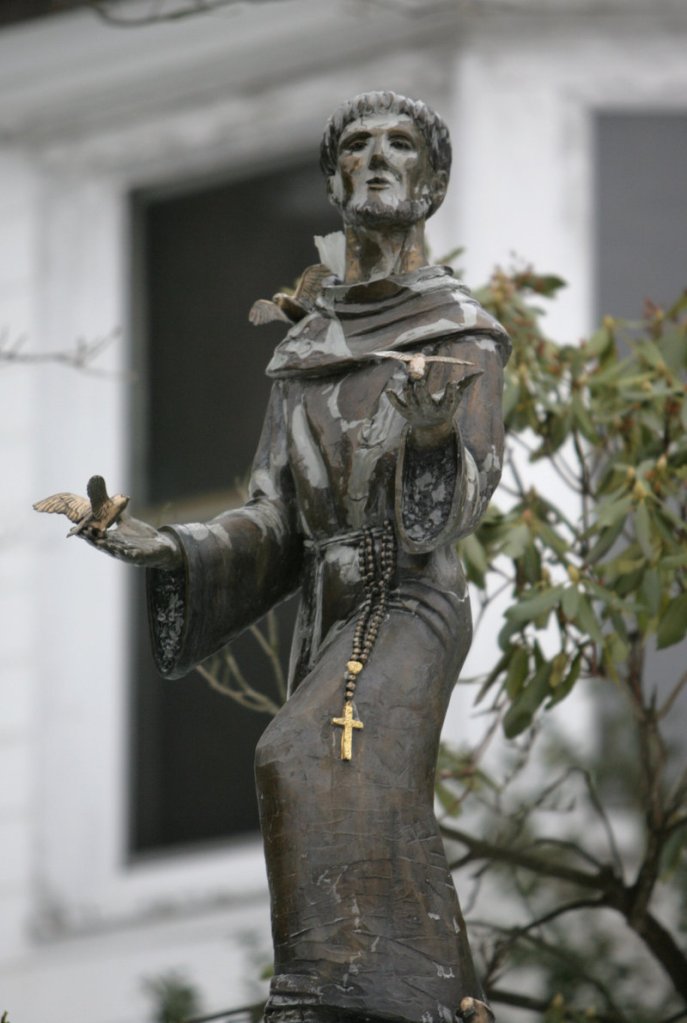MINERSVILLE, Pa. – Like many Roman Catholics, Marie Lutkus felt anger, sadness and disillusionment after her beloved church was shut down in a consolidation of parishes.
St. Francis of Assisi had been her spiritual home since 1961. It’s the place where she was married, where her children and grandchildren were baptized, where she mourned the loss of her parents and brother. So when the doors were locked in 2008, she couldn’t simply let go.
Three years later, Lutkus and parishioners at eight other shuttered churches in Pennsylvania’s Allentown diocese have persuaded a Vatican panel to overturn the bishop’s decision to close them down — an exceedingly rare reversal that experts say may signal a policy shift on U.S. church closures.
“This is a thunderclap. I am absolutely floored,” said Charles Wilson, executive director of the St. Joseph Foundation, a San Antonio, Texas-based group that helps Catholic laity navigate church law.
In a series of decisions that parishioner groups began receiving in January, the Congregation for the Clergy — the Vatican office in charge of the world’s 400,000 Catholic priests — said the bishop had failed to come up with a “grave reason” for shuttering the churches as required by Catholic law. The panel ruled that parishioners must be allowed to use the padlocked buildings for worship.
“It does not bring the parish back to life, but it puts on the table what could be a workable compromise: to physically reopen the locked-up church as a Catholic place of worship,” said Catholic activist Peter Borre of the Council of Parishes, which has spent years appealing Boston-area church closures.
Around the same time as the Allentown decisions, the Vatican also rejected attempts by the diocese of Springfield, Mass., to convert three church buildings from holy to secular use.
While a spokesman said the Allentown diocese is seeking clarification about the Vatican decrees, Wilson and other experts said the decisions should give hope to other parishioner groups fighting to save their places of worship.
“This is the first major, official pronouncement by the Congregation for the Clergy that gives relief to American parishioners challenging the suppression of their parishes,” Borre said.
It’s unclear what will happen next.
Parishioners and diocesan lawyers in Allentown are still evaluating the rulings, and Bishop John Barres could appeal to the Vatican’s highest court. Complicating matters is that the Congregation for the Clergy upheld the bishops’ decision to merge parishes, the broader territorial units that include churches and other Catholic buildings.
Still, it’s a completely unexpected victory for parishioners.
Lutkus, 58, said she looks forward to the reopening of St. Francis. “I would like to walk in there, and look around, and sit down and feel like I’m back home,” she said. “I want to see it used for the reason that it was built. That’s all I want.”
Copy the Story Link
Send questions/comments to the editors.



Success. Please wait for the page to reload. If the page does not reload within 5 seconds, please refresh the page.
Enter your email and password to access comments.
Hi, to comment on stories you must . This profile is in addition to your subscription and website login.
Already have a commenting profile? .
Invalid username/password.
Please check your email to confirm and complete your registration.
Only subscribers are eligible to post comments. Please subscribe or login first for digital access. Here’s why.
Use the form below to reset your password. When you've submitted your account email, we will send an email with a reset code.